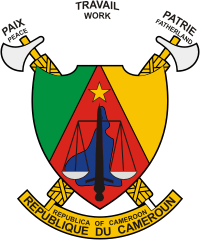 Space
Program of Cameroon
Space
Program of Cameroon
------Cameroon's Space Agency------
|
Level = 0 Development: Very Low
What has been going on in Cameroon?
What kind of space power do they have?
Does Cameroon have space weapons?
What are they planning over there? |
|
Population: 16,500,000 / Language: French / GDP: $2200 / Cities: Yaounde, Douala
OVERVIEW
The modern state of Cameroon was created in 1961 by the unification of two former colonies, one British and one French. Since then it has struggled from one-party rule to a multi-party system in which the freedom of expression is severely limited.
Cameroon began its independence with a bloody insurrection which was suppressed only with the help of French forces. There followed 20 years of repressive government under President Ahmadou Ahidjo. Nonetheless, Cameroon saw investment in agriculture, education, health care and transport. In 1982 Mr Ahidjo was succeeded by his prime minister, Paul Biya. Faced with popular discontent, Mr Biya allowed multi-party presidential elections in 1992, which he won. In 1994 and 1996 Cameroon and Nigeria fought over the disputed, oil-rich Bakassi peninsula. Nigeria withdraw its troops from the area in 2006 in line with an international court ruling which awarded sovereignty to Cameroon. Internally, there are tensions over the two mainly English-speaking southern provinces. A secessionist movement, the Southern Cameroon National Council (SCNC), emerged in the 1990s and has been declared as illegal. Cameroon has one of the highest literacy rates in Africa. However, the country's progress is hampered by a level of corruption that is among the highest in the world. In 1986 Cameroon made the world headlines when poisonous gases escaped from Lake Nyos, killing nearly 2,000 people. Full name: Republic of Cameroon
President: Paul Biya Veteran leader Paul Biya won a new seven-year term in presidential elections in October 2004, with more than 70% of the vote. Commonwealth observers accepted the result, but said the poll lacked credibility in key areas. Opposition parties alleged widespread fraud.
|
Cameroon's Space Infrastructure
Cameroon is one of the world's poorest countries, but unlike its neighbors in the extremely poverty stricken swathe from West Africa to the Horn in the East, Cameroon has a long and coherent history- a tradition of centralized statehood. Not only does it not have an agency, but also no infrastructure in which one would arise. The University of Yaounde does not offer astrophysics, astronautics or aeronautics, and the government has no ministry devoted to science of this type. Cameroon has no history of being part of any organization dealing with space, nor has any launch capability. Cameroon lacks the industrial base, the educational base and the political foundation for a process like this to occur within it. Cameroon operates no satellites and, not having a presence, has no space power. The government of Cameroon in Yaounde has no plans for attempting to further any ambition in space development or research.
|
None
|
TODAY AND INTO THE FUTURE
Nothing Planned
|